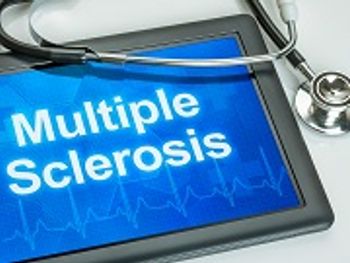
New data provides insight into the safety and efficacy of the FDA-approved multiple sclerosis drug.

New data provides insight into the safety and efficacy of the FDA-approved multiple sclerosis drug.

MedChew Rx is a cannabidiol that treats pain and spasticity associated with multiple sclerosis.

Cellular mechanism may present treatment target for multiple sclerosis.

The first new FDA approval for ALS in 22 years, here's what you should know.

New analyses show the benefits of early treatment with Tefidera (dimethyl fumarate) and Tysabri (natalizumab).

Study shows the importance of evaluating a drug’s ability to address and reduce MS relapses, lesions, disability progression

Fingolimod (Gilenya) reduced disease progression in patients with relapsing-remitting multiple sclerosis.

Relationship between MS and common herpes virus Epstein-Barr virus offer new treatment target.

Relapsing-remitting multiple sclerosis treatment found to trigger programmed cell death.

Study finds miR-219 restarts myelin production in nerves of mice with multiple sclerosis.

Under the ruling, Biogen secured Tecfidera exclusivity through 2028.

Dalfampridine is the only FDA-approved drug to aid walking in patients with MS.

Patients with MS have a high incidence of calcium phosphate stones and struvite stones, study finds.

Genetic variants influences the risk of MS and other autoimmune disorders.

Variants of the IL7R and DDX39B genes may lead to increased risk of multiple sclerosis.

Identification of genetic variants may improve diagnosis of MS.

Top five most popular articles this week on Specialty Pharmacy Times.

Current treatment options for MS help limit relapses, but are unable to reverse the damage the disease has already caused.

The multiple sclerosis (MS) community eagerly awaited the March 28 FDA approval of ocrelizumab (Ocrevus) for treating relapsing and primary progressive forms of MS. -

Ocrelizumab (Ocrevus) granted FDA approval to treat 2 forms of MS.

Novel test demonstrates the benefits of exercise in individuals with neurological injuries and illnesses.

Neurologist Michael Racke, MD, discusses the new FDA approval of ocrelizumab and how it will impact the future treatment of MS.

Findings open the door for new therapeutic options for myelin regeneration in multiple sclerosis.

Equine-assisted therapy improved motor function in cerebral palsy and multiple sclerosis.

Genentech’s $100,000 grant will fund a home-based telemedicine program.